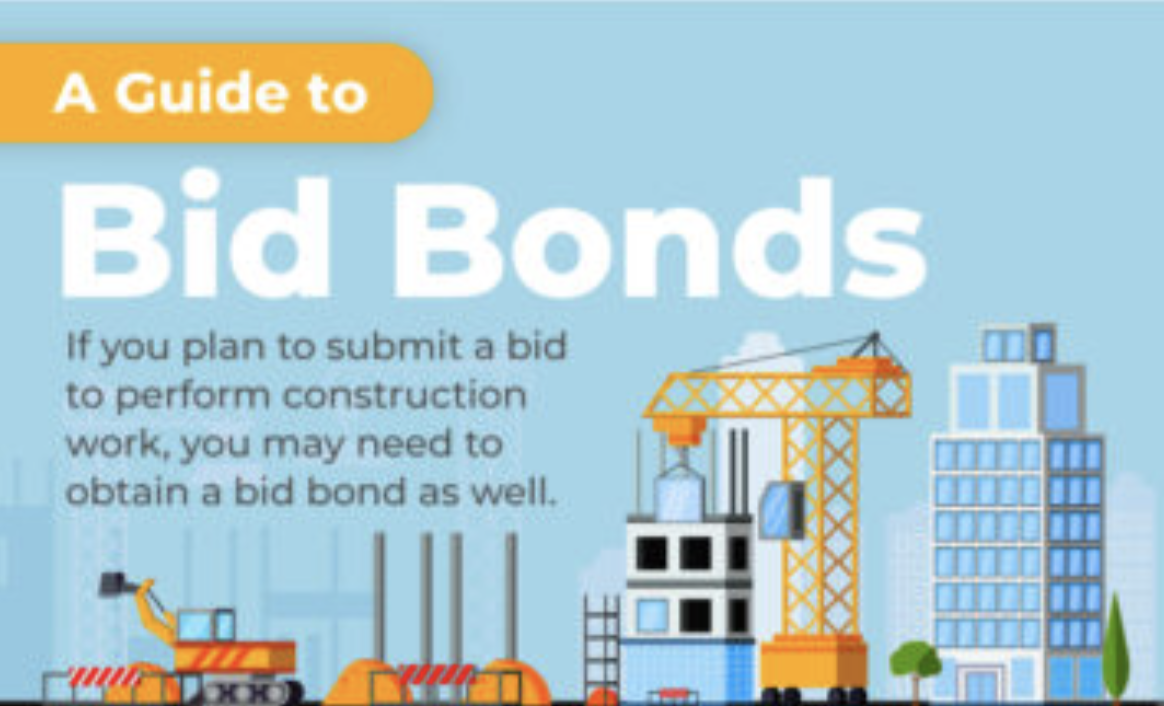
Share this Image On Your Site
What is a Bid Bond?
If’s a guarantee that if you win a bid, you will accept the job and perform the work as laid out in the contract. Contractors often have to obtain bid bonds along with performance bonds and payment bonds – three types of surety bonds collectively known as “construction bonds.”
How Do Bid Bonds Work?
If you win a bid and then back out of the job because you lack the time or resources to perform the work, the project owner can file a claim against the bid bond seeking damages. The surety company that backs the bond guarantees payment for valid claims, giving project owners a sure way to recoup expenses when contractors submit bids they can’t honor. After settling the claim, the surety does whatever necessary to collect the claim amount from the bonded contractor – the party that triggered the claim by backing out of the bid, and the one responsible for paying all claims against the bid bond.
What are the Bid Bond Requirements?
Every bond is different depending on the project, but the requirements are always the same: upon winning a bid, a contractor must follow through with the project or else take financial responsibility for backing out.
Who Requires Bid Bonds?
They’re mandatory on most public projects funded by taxpayer dollars. Bid bonds are also common on many private projects. When a project requires a bond, there’s no exceptions – any bid not backed by a bond will get rejected outright.
How Do I Get a Bid Bond?
You will need to submit an application and supply any other documentation the surety wants. Then, based on your credit score and business history, they will decide whether to bond you and quote you a price for the premium. Pay that price to activate the bond, then you receive documentation proving you’ve met the bid bond requirement.


